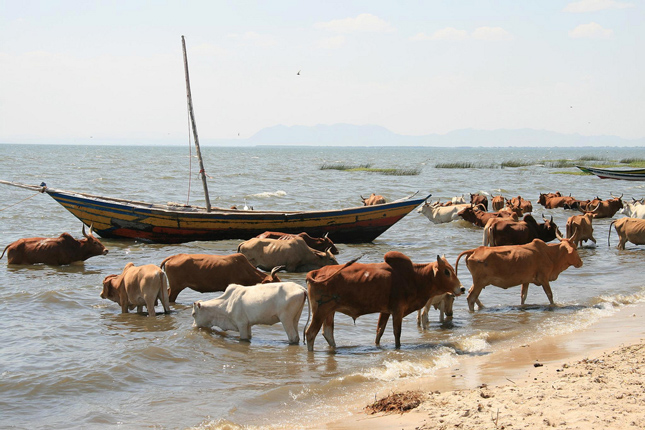-
Paola Adriázola and Stephan Wolters, ECC Platform
Investing in Collaboration to Manage Natural Resource Conflict
September 25, 2014 By Wilson Center Staff
Conflict over environmental resources endangers rural people’s livelihoods and can increase the risk of broader social conflict. Yet joint action to sustain shared resources can also be a powerful means for community building. The Strengthening Aquatic Resource Governance (STARGO) project demonstrated this in three ecoregions: Lake Victoria, with a focus on Uganda; Lake Kariba, with a focus on Zambia; and Tonle Sap Lake in Cambodia. The results of the project were released at an event in Berlin in early July 2014.
Bringing together government, community, and civil society actors, the project helped step up efforts to increase community voices in private sector investment decisions and secure access rights for marginalized households in the face of competition. In addition, community-based co-management, resource protection, and public health were strengthened. Lessons learned and recommendations derived from this work include:
1. Local priorities: Participants should define the priorities and development actions that they want to implement. When defined by locals, measures are more likely to have outcomes that bring direct benefits to the communities. Addressing local disputes often requires support from higher levels of administration, so building capacity within government agencies to convene and facilitate dialogue is critical.
Continue reading on the ECC Platform.
Sources: Consultative Group on International Agricultural Research.
Photo Credit: Lake Victoria, Tanzania, courtesy of flickr user Marc Veraart.
 A Publication of the Stimson Center.
A Publication of the Stimson Center.



